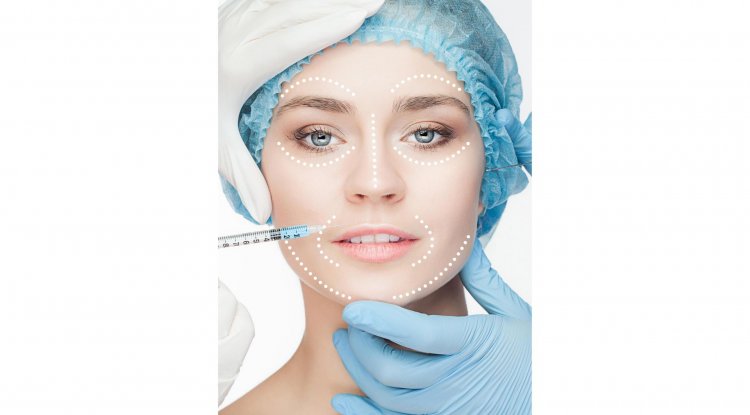Sleep Your Way to Radiant Skin: Unveiling the Ultimate Beauty Sleep Secrets
In the quest for glowing, youthful skin, most people focus on external treatments like serums and facials, but the key to truly transformative skin might be as simple as optimizing your sleep. The concept of “beauty sleep” isn’t just a catchy phrase; it’s grounded in science and practice. How well you sleep and the strategies you employ to maximize your nightly rest can significantly impact your skin’s appearance, texture, and overall health. So, what exactly are these beauty sleep secrets? Let’s dive into the science and strategies that can help you wake up with your best face forward.

The Science Behind Beauty Sleep
Sleep is a critical component of overall health, and its role in skin health cannot be overstated. During sleep, your body undergoes various restorative processes, which include cellular repair and regeneration. Here’s how sleep influences your skin:
1. Cellular Repair and Regeneration
When you sleep, your body produces growth hormone, which plays a key role in tissue growth and repair. This is especially relevant for skin, as the production of collagen and elastin—two proteins crucial for skin elasticity and firmness—peaks during deep sleep stages. Collagen helps to reduce wrinkles and fine lines, making adequate sleep essential for maintaining youthful skin.
2. Hormonal Balance
Sleep influences the balance of hormones that affect skin health. Lack of sleep can lead to an increase in stress hormones like cortisol, which may contribute to skin issues such as acne and inflammation. Conversely, adequate sleep helps regulate these hormones, promoting a clear and even complexion.
3. Skin Barrier Function
A proper sleep cycle also supports the skin's barrier function, which protects against environmental aggressors and maintains hydration. A compromised barrier can lead to dry, irritated skin and exacerbate conditions like eczema and psoriasis. By ensuring restorative sleep, you help your skin maintain its protective barrier, resulting in a more resilient and hydrated complexion.
Crafting Your Perfect Sleep Routine
Achieving the skin benefits of sleep requires more than just hitting the sack early. Creating a sleep routine tailored to your needs can make a significant difference. Here’s how to enhance your nightly rest:
1. Establish a Consistent Sleep Schedule
Consistency is key when it comes to sleep. Going to bed and waking up at the same time every day helps regulate your body’s internal clock. This regulation can improve sleep quality and ensure you reach the restorative deep sleep stages necessary for skin repair.
2. Create a Relaxing Bedtime Ritual
Winding down before bed can signal your body that it’s time to sleep. Incorporate calming activities into your nightly routine, such as reading a book, taking a warm bath, or practicing gentle yoga. Avoid screens for at least an hour before bed, as the blue light emitted by phones and computers can interfere with melatonin production, a hormone essential for sleep.
3. Optimize Your Sleep Environment
Your sleep environment can significantly impact sleep quality. Ensure your bedroom is cool, dark, and quiet. Invest in a comfortable mattress and pillows that support restful sleep. Additionally, consider using blackout curtains or a white noise machine to create an ideal sleep setting.
Beauty Sleep Boosters: What to Include in Your Routine
To amplify the skin benefits of sleep, consider integrating the following beauty-enhancing practices into your nightly routine:
1. Nighttime Skincare Regimen
Your skin goes into repair mode while you sleep, so your nighttime skincare regimen should focus on supporting this process. Opt for products with ingredients like hyaluronic acid, retinoids, and peptides. Hyaluronic acid helps retain moisture, retinoids stimulate collagen production, and peptides aid in skin repair.
2. Hydration is Key
Keeping your skin hydrated is crucial for maintaining its elasticity and preventing dryness. Drink plenty of water throughout the day and consider using a hydrating overnight mask or moisturizer to lock in moisture while you sleep.
3. Consider Silk Pillowcases
Silk pillowcases can be gentler on your skin compared to cotton ones. They reduce friction and minimize the risk of developing sleep lines and creases. Additionally, silk is less absorbent than cotton, so your skincare products stay on your skin rather than soaking into the pillowcase.
4. Elevate Your Head
Sleeping with your head slightly elevated can reduce the likelihood of fluid retention and puffiness, particularly around the eyes. Use an extra pillow or a wedge pillow to prop up your head and help improve circulation.
Nutrition and Lifestyle: Supporting Your Sleep for Better Skin
What you eat and how you live during the day also play a role in your skin’s health and your ability to achieve restful sleep.
1. Balanced Diet
A diet rich in antioxidants, vitamins, and minerals supports overall skin health. Incorporate foods high in vitamins A, C, and E, which help fight oxidative stress and promote skin repair. Omega-3 fatty acids found in fish, nuts, and seeds also contribute to a healthy, radiant complexion.
2. Limit Caffeine and Alcohol
Caffeine and alcohol can interfere with your sleep quality. Try to limit their intake, especially in the hours leading up to bedtime. Instead, opt for calming herbal teas like chamomile or peppermint, which can help promote relaxation and improve sleep quality.
3. Regular Exercise
Regular physical activity can enhance sleep quality and support overall health. Aim for at least 30 minutes of moderate exercise most days of the week. However, avoid vigorous exercise close to bedtime, as it may have the opposite effect and disrupt your sleep.
Managing Stress for Better Sleep and Skin
Chronic stress can negatively impact both sleep and skin health. Managing stress effectively is crucial for maintaining a healthy sleep routine and a radiant complexion.
1. Mindfulness and Meditation
Practicing mindfulness and meditation can help reduce stress levels and promote relaxation. Incorporate techniques such as deep breathing, guided imagery, or progressive muscle relaxation into your daily routine to help manage stress and improve sleep quality.
2. Journaling
Writing down your thoughts and feelings before bed can help clear your mind and alleviate anxiety. Consider keeping a journal to jot down your daily experiences and any worries you may have. This practice can help you unwind and prepare for restful sleep.
3. Professional Support
If you find it challenging to manage stress on your own, seeking professional support from a therapist or counselor can be beneficial. They can provide strategies and tools to help you cope with stress and improve both your sleep and skin health.
The Power of Sleep Masks and Accessories
While optimizing your sleep environment and skincare routine are fundamental, adding specific sleep accessories can further enhance your beauty sleep. Here are a few accessories to consider:
1. Sleep Masks
A quality sleep mask can block out light and help regulate your circadian rhythm. Light exposure can interfere with your body’s natural sleep-wake cycle, so a sleep mask can be particularly useful if you’re sensitive to light or sleep in a well-lit environment.
2. Essential Oils
Essential oils like lavender and chamomile have been shown to promote relaxation and improve sleep quality. Use a diffuser to fill your bedroom with these calming scents, or apply a few drops to your pillowcase or wrists before bedtime.
3. Humidifiers
Dry air can dehydrate your skin and disrupt your sleep. A humidifier adds moisture to the air, which can be particularly beneficial during the winter months or in arid climates. It helps maintain skin hydration and can improve overall sleep quality.
Daytime Habits to Support Nighttime Beauty
Maintaining good daytime habits can significantly influence your nighttime beauty sleep. Here are some practices to consider:
1. Sun Protection
Daily sun protection is crucial for maintaining healthy skin. Exposure to UV rays can accelerate skin aging and damage collagen, which impacts the effectiveness of your beauty sleep. Use a broad-spectrum sunscreen with SPF 30 or higher every day, even on cloudy days or when indoors.
2. Mind Your Diet
As mentioned earlier, a balanced diet supports skin health and sleep quality. Pay attention to your nutritional intake, ensuring it includes a variety of fruits, vegetables, lean proteins, and whole grains. Avoid heavy, rich foods close to bedtime, as they can cause discomfort and disrupt your sleep.
3. Stay Active Throughout the Day
Regular physical activity can help regulate your sleep patterns. However, the timing of your exercise can be important. While morning or afternoon workouts can enhance sleep quality, intense exercise right before bed might have the opposite effect. Find a balance that works for you and supports both your skin and sleep needs.
Advanced Techniques for Beauty Sleep
For those looking to go beyond the basics, there are advanced techniques and treatments that can further enhance the benefits of beauty sleep:
1. Sleep Studies and Diagnostics
If you struggle with sleep quality despite following best practices, consider undergoing a sleep study. Professional sleep assessments can identify underlying issues such as sleep apnea or restless leg syndrome that may be impacting your sleep and, consequently, your skin health.
2. Cosmetic Treatments
Some cosmetic treatments, such as nighttime facials or aesthetic procedures, can be timed to complement your sleep cycle. Consult with a dermatologist or skincare professional to explore treatments that align with your sleep routine and skin goals.
3. Supplemental Support
Certain supplements, like melatonin or magnesium, can support better sleep quality. However, it’s essential to consult with a healthcare provider before adding any supplements to your routine, as individual needs can vary.
The Intersection of Mental and Physical Health
Your mental health plays a significant role in both your sleep quality and skin health. Stress, anxiety, and depression can negatively affect your sleep patterns and skin appearance. Addressing mental health concerns through therapy, lifestyle changes, and supportive practices is integral to achieving the full benefits of beauty sleep.
1. Therapeutic Techniques
Incorporate techniques such as cognitive-behavioral therapy (CBT) for insomnia or other therapeutic methods to manage anxiety and stress. Professional help can provide tailored strategies to improve sleep quality and, by extension, support your skin’s health.
2. Healthy Relationships
Building and maintaining supportive relationships can positively impact your mental well-being. Engage in activities that foster social connections and create a positive environment, which can contribute to better sleep and improved skin health.
Embracing a Holistic Approach
Beauty sleep is not just about getting more hours of rest; it’s about creating a comprehensive routine that supports your skin’s health from multiple angles. By combining proper sleep hygiene, effective skincare practices, mindful daytime habits, and stress management techniques, you can maximize the benefits of your nightly rest and achieve a radiant complexion.
Incorporating these beauty sleep secrets into your routine can lead to visible improvements in your skin’s texture, tone, and overall appearance. Remember that consistency is key, and making small, sustainable changes can have a profound impact on your skin health over time.
Disclaimer
The content shared on this blog is intended for informational purposes only. Consulting a professional about the highlighted information is recommended. The blog and its authors are not liable for any adverse effects or consequences resulting from the use of the methods or products provided. Always prioritize your health and safety.
What's Your Reaction?





















